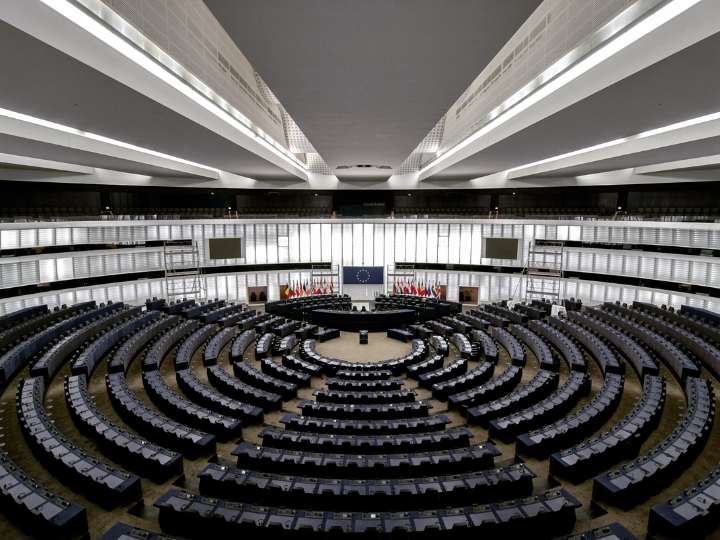by Eleonora Vasques
With a slight majority, the EU Parliament approved its proposal for EU treaty reform on Wednesday (22 November), triggering the formal request to the heads of state to vote on whether to open the EU reform convention.
Both minor and major divisions on the proposal’s contents persisted among all political groups at the European Parliament, particularly in the European People’s Party (EPP), resulting in a divided final vote for the centre-right.
The last time EU institutions reformed the treaties was in 2009, which resulted in the adoption of the Lisbon Treaty.
The Lisbon Treaty changed many aspects of the technical and bureaucratic functioning of the Union, for instance, making the European Parliament a full co-legislator, putting more policy areas under the qualified majority voting in the Council of the EU, making the European Council an EU institution, and creating the figure of the high representative for foreign policy of the Union.
Calls to reopen the convention have come hand in hand with progress in the EU’s enlargement reforms and possible accession of Ukraine, Moldova and the Western Balkans.
During the press conference after the vote on Wednesday, all the rapporteurs of the file – Guy Verhofstaft, Sven Simon, Gabriele Bischoff, Daniel Freund, and Helmut Scholz (respectively from the liberal, centre-right, socialist and Green groups) presented the approval of the proposal as a good step forward delivered to citizens.
‘We promised our citizens to deliver an ambitious reform’s proposal, and particularly on policy matters, and we delivered,” Bischoff said.
The procedure
Following the approval in plenary, the European Parliament notified the Spanish EU presidency of the request to open a convention to reform the treaties.
There is not yet a clear composition of the convention, however, in general terms, it will be composed of EU representatives as well as national governments and parliaments.
After the notification, the Spanish Presidency has to pass the request to the European Council, to insert in the agenda for the next summit (which will happen in mid-December) a vote on whether to open the convention or not.
According to these procedures, heads of states will vote on the convention with a simple majority.
Once the convention is open, the discussion on how to reform the treaties will start, and the European Parliament’s detailed proposal will be part of the discussion. Any decision of reforms will be then taken by consensus among members of the convention.
During the plenary debate on the matter on Tuesday (21 November), the Spanish presidency told MEPs that they will pass to the European Council the request to put the vote on December’s agenda.
The proposal
The report on treaty reform is a result of the Conference on the Future of Europe, a year-long experiment in participatory democracy at the EU level, that was conducted between 2021 and 2022. In the process, EU citizens, elected randomly across the continent, had a change to contribute directly to EU policy-making and produce recommendations.
MEPs have since taken on board citizens’ requests, some of which require a change of EU rules and competences.
In particular, EU lawmakers ask to give the EU more powers on “environmental issues, as well as shared EU powers in the following areas currently within the member states’ exclusive remit: public health (especially cross-border health threats and including sexual and reproductive health and rights), civil protection, industry, and education,” a press release on the matter explains.
“Existing shared powers should be developed further in the areas of energy, foreign affairs, external security and defence, external border policy, and cross-border-infrastructure,” it is added.
EPP divided
The whole report was put to a vote following divisions amongst the centre-right groups. To the question of why the EPP voted in such a heterogeneous way, the EPP rapporteur Sven Simon told journalists that there are “differences” among national delegations while other MEPs in the group believe that the reform is “not coming at the right moment”.
Ahead of the vote, EPP President Manfred Weber told Euractiv that divisions on the matter persisted on the contents of the reform “as many other groups”.
*first published in: Euractiv.com




 By: N. Peter Kramer
By: N. Peter Kramer
